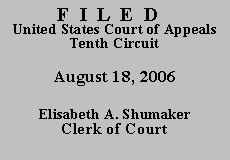

The Oklahoma Workers Compensation and Compusource Ok discriminate against workers who have injuries that will not result in large awards. In those cases where workers are able to obtain legal representation, Compusource forces those cases to be taken to court and the lawyer withdraws from representing the injured worker. In my case, I chose to continue with my case pro se, and have found a system in which judges totally ignore evidence and routinely rule in favor of Compusource. I have taken my complaint to the Attorney General and have not even got the dignity of a response. . . . In the interests of justice and equity, I am now taking my case to this court. I would like to make this case a class action to invite others who have been denied justice by this court to join this action. To correct this injustice, there needs to be a monetary award for all the people who were injured by this court, and a new and fair hearing on their cases.
R. Doc. 1. The defendants, other than Ms. Williamson, moved to dismiss the complaint. The district court granted their motions, dismissing all defendants, including Ms. Williamson, without prejudice. It ruled that Mr. Houck's response was untimely under the local rules so "it is appropriate to deem both motions confessed and granted on that basis." Id. Doc. 16 at 2. Alternatively, it dismissed on the grounds that (1) the court lacked jurisdiction; (2) the complaint failed to state a claim; and (3) with respect to defendants Williamson and Brawner, the complaint made no allegations against them. We affirm.
The untimeliness of Mr. Houck's response to the motions to dismiss was not a sufficient basis for dismissal. See Issa v. Comp USA, 354 F.3d 1174, 1177-78 (10th Cir. 2003) ("[A] district court may not grant a motion to dismiss for failure to state a claim merely because a party failed to file a response. . . . [E]ven if a plaintiff does not file a response to a motion to dismiss for failure to state a claim, the district court must still examine the allegations in the plaintiff's complaint and determine whether the plaintiff has stated a claim upon which relief can be granted." (internal quotation marks, citations, and brackets omitted)). The district court also ruled, however, that it lacked subject-matter jurisdiction. Our review of this issue is de novo. See Colo. Envtl. Coal. v. Wenker, 353 F.3d 1221, 1227 (10th Cir. 2004). Even construing Mr. Houck's pro se complaint liberally, as we must, see Hunt v. Uphoff, 199 F.3d 1220, 1223 (10th Cir. 1999), we agree with the district court that diversity jurisdiction does not exist, and the complaint fails to set forth "a short and plain statement of the grounds upon which the court's jurisdiction depends," as required by Fed. R. Civ. P. 8(a).
We AFFIRM the judgment of the district court and deny Mr. Houck's motion to proceed in forma pauperis.
ENTERED FOR THE COURT
Harris L Hartz
Circuit Judge
*.After examining the briefs and appellate record, this panel has determined unanimously that oral argument would not materially assist the determination of this appeal. See Fed. R. App. P. 34(a)(2); 10th Cir. R. 34.1(G). The case is therefore ordered submitted without oral argument. This order and judgment is not binding precedent, except under the doctrines of law of the case, res judicata, and collateral estoppel. The court generally disfavors the citation of orders and judgments; nevertheless, an order and judgment may be cited under the terms and conditions of 10th Cir. R. 36.3.